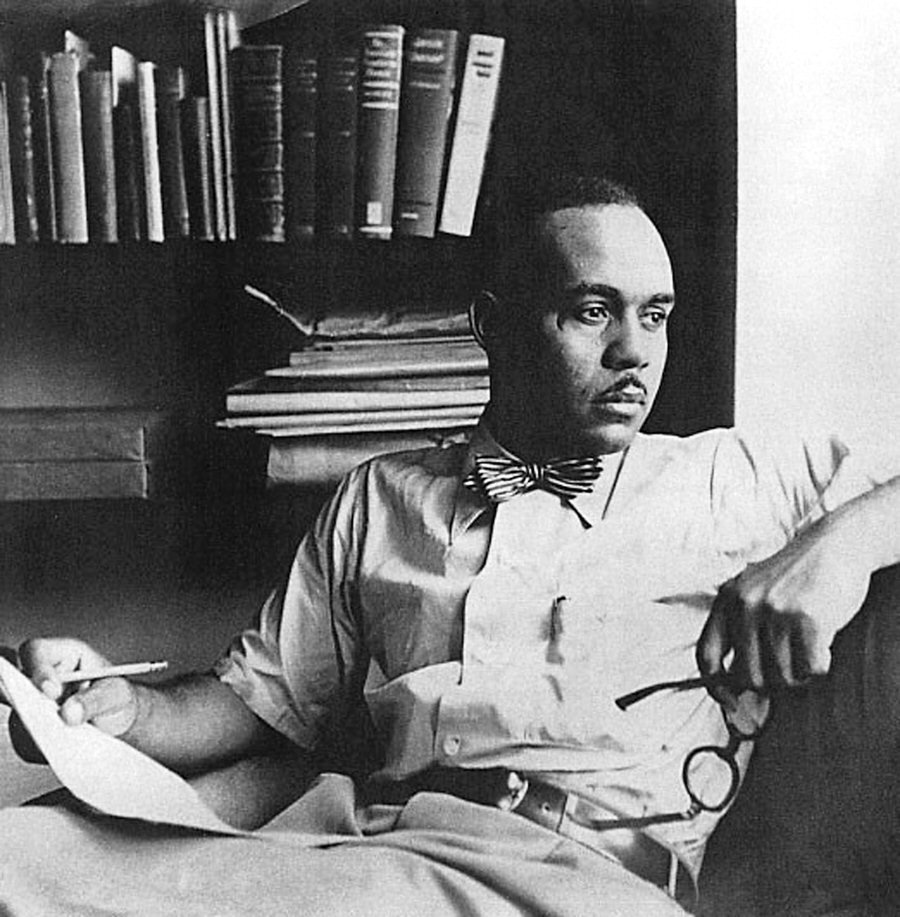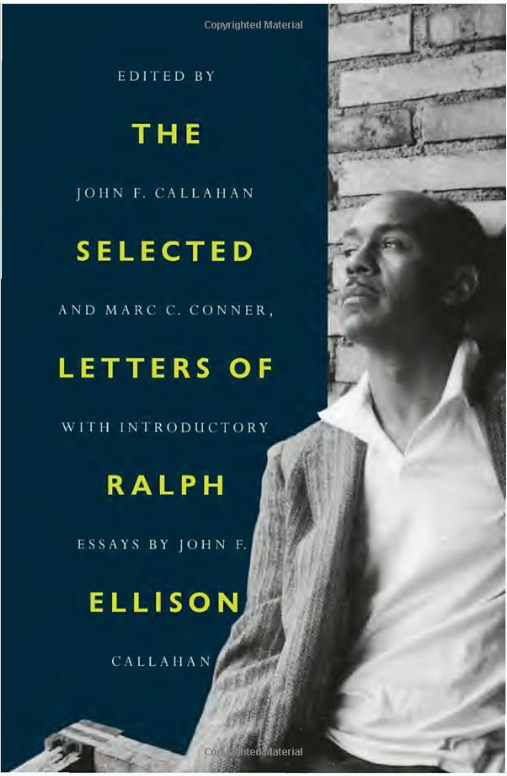Ralph Ellison: Principles in Action
Ralph Ellison
. . . principles in action are enactments of ideals grounded in a vision of perfection that transcends the limitations of death and dying.
—Ralph Ellison
This profoundly eloquent statement by Ellison, from his classic essay, “The Little Man at Chehaw Station,” deserves some contemplation. For the past few weeks we’ve been riffing on the principles and practices that animate the Jazz Leadership Project. As Ellison is a deep influence on my thinking and my outlook on music and culture, it’s time to give him some solos in our jam session of ideas.
Why Pursue Principles in Action?
The are several reasons why “principles in action” are especially timely today. In the past decade of disillusionment and disappointment, as icons fell to earth, have been jailed, or revealed to be scoundrels or frauds; as big technology companies use our private data for profit and unchecked power; as politicians cravenly cater to their bases, ignore a political center of gravity, and sacrifice the national interest; as the very institutions of our democracy are weakened by foreign influence and the vagaries of the digital economy, foundation principles are even more crucial to remember, recall, recount, and reinforce. That’s why for us, jazz principles in action are an aesthetic statement of the highest values of this American musical form. We don’t take jazz lightly, because jazz is precious, a valuable a gift to the world.
Individual excellence is more than a catchphrase to us: it’s sacred, spiritual, a recognition of the divine potential within each and every one of us. Antagonistic cooperation isn’t a cute oxymoron, it’s a declaration of heroic belief. Shared leadership isn’t a trendy phrase simply because the command-and-control approach to leadership is going out of style, it’s a mode of being and becoming that can uplift institutions and organizations worldwide. Ensemble mindset, further, is statement of vision, mission, purpose, the way jazz artists at their best function while playing together, and is mirrored by what some call alignment and high performance in the workplace.
Ralph Ellison Takes Center Stage
There are those who would prefer for Ralph Ellison to not be remembered, for Ellison to be viewed as a relic of the past, as a modernist whom post-modernism has left behind. These are the same kind of people who view the blues and swing as old-time music that should be left behind, but don’t realize that the blues and swing are vital organs in the beating heart of our music and our democratic worldview and lifestyle.
Fortunately, the recently released tome of Ellison correspondence, The Selected Letters of Ralph Ellison, has brought Ellison’s genius back into the conversation among those who care about the life of ideas and how it influences how we speak, move, and live our daily lives.
Take another look at the Ellison quote that begins this post. Now, let’s mull over a related Ellison quote, from the same classic essay: “Words that evoke our principles are, according to Kenneth Burke, charismatic terms for transcendent order, for perfection.”
Democracy is one of those words that evoke our principles, and therefore vibrates with the potential for transcendent realization. Democracy represents an ideal that draws us to its fulfillment even as we fall short of its realization, time and time again . . .
Why Put Our Values Into Action?
Putting our values in action moves us closer to the ideals that make life worth living personally, culturally and socially. Ideals are our ideas, our visions, of what life would be if it were perfect. Cynics will scoff at the notion of perfection, and realists will be quick to point out that perfection—in human terms—is rare indeed. While that’s true, it doesn’t follow that ideals and a vision of perfection aren’t worth having.
Murray and Ellison
As Ellison’s main man Albert Murray says in The Hero and the Blues:
. . . without the completely romantic presuppositions behind such elemental values as honor, pride, love, freedom, integrity, human fulfillment, and the like, there can be no truly meaningful definition either of tragedy or of comedy. Nor without such idealistic preconceptions can there be anything to be realistic about, to protest about, or even to be cynical about.
—Albert Murray
The Ideal and the Real
Dig that dialectic. The ideal is the basis upon which what we call “real” is grounded, and for those sad souls who embrace cynicism, is the justification for their pessimistic stance.
Elsewhere in his stellar body of work Ellison riffed that “tragedy always involves making the ideal manifest in the real world.” American ideals and the ways we tragically violate them, as we inch toward their realization, was a common theme of Ellison and of Murray. Their insights are as applicable to us as leaders and workers in teams and organizations as they are to us as democratic citizens.
Take this statement by Ellison, from a 1972 interview:
Americans are called upon to regulate themselves. God is not going to stop us and no foreign enemy is going to stop us. We have to stop ourselves. We have to define what is human and see that we live within it without creating a stultifying atmosphere and see that within it human ingenuity will not be discouraged.
—Ralph Ellison
Our definition of the human will include the ideal and the real, with the ideal causing us to continually stretch ourselves beyond the comfort zones of our egos, to refuse to be satisfied with the status quo. As leaders, as curators of the environments through which culture is lived and expressed, we give form, structure and direction based on shared vision, values and purpose. When we as leaders do this, meaning is present and human creativity not only isn’t discouraged, but flourishes. When we as leaders do this, the highest values we profess will live beyond our own lifetimes.
This is our challenge. This is our opportunity. Principles in action point the way.



